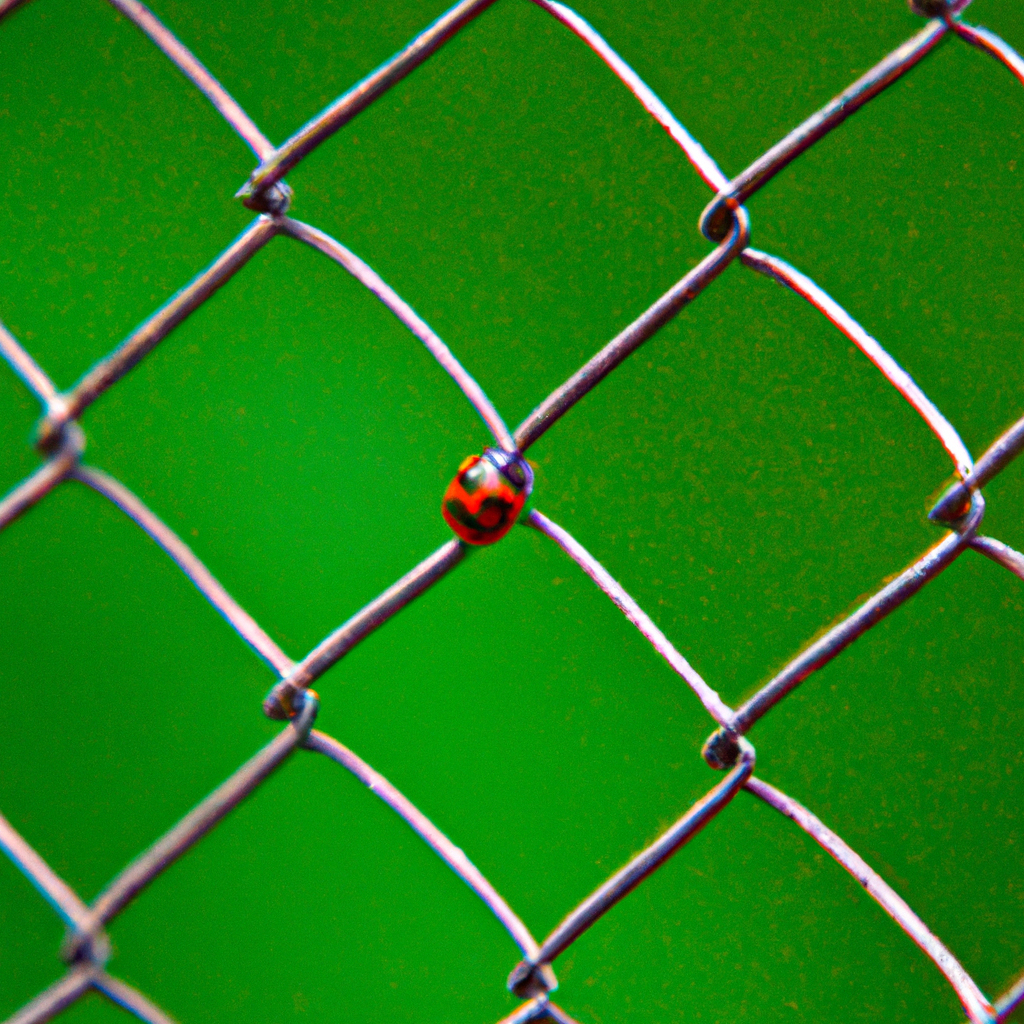If you’re looking to protect your fence from insect infestations, you’ve come to the right place. In this article, we’ll explore some effective strategies to keep those pesky bugs at bay. From preventative measures to natural repellents, we’ve got you covered. By implementing these tips, you can ensure that your fence remains insect-free and maintains its durability and aesthetic appeal. So, let’s dive in and learn how to safeguard your fence against unwanted critters!
Choosing the Right Fence Material
When it comes to choosing the right fence material, there are several factors to consider. One important consideration is the susceptibility of different materials to insect infestation. Certain types of fences are more vulnerable to insect damage than others, so it’s important to understand which materials are the most insect-resistant.
Identifying the Common Insects That Infest Fences
Before delving into the vulnerability of different fence materials to insect infestation, it’s crucial to have a good understanding of the common insects that tend to infest fences. By being able to identify these insects, you can take the necessary preventive measures to protect your fence from infestation. Some common insects that may infest fences include termites, ants, and mosquitoes.
Understanding the Vulnerability of Different Fence Materials to Insect Infestation
Different fence materials have varying levels of vulnerability to insect infestation. For example, wooden fences are particularly susceptible to termite damage, while vinyl and metal fences are more resistant to insect infestation. By understanding the vulnerability of different materials, you can make an informed decision when choosing the right fence material for your specific needs.
Considering Insect Resistant Fence Materials
If you want to minimize the risk of insect infestation on your fence, it’s wise to consider using insect-resistant fence materials. Some materials, such as certain types of wood or composite materials, are less appealing to insects and can provide an extra layer of protection against infestation. These materials may cost a bit more upfront, but they can save you a lot of money and hassle in the long run by preventing costly damages.
Preventive Measures
Preventing insect infestations on your fence requires regular inspection and maintenance, as well as creating barriers against insects and properly sealing and staining your fence.
Regular Inspection and Maintenance of Your Fence
Regularly inspecting your fence is crucial in identifying any signs of insect infestation early on. Look for visible damage, such as chew marks, holes, or tunnels, as well as any signs of insect activity. Additionally, keep an eye out for any loose or damaged boards that could provide entry points for insects. By addressing these issues promptly, you can prevent further damage and infestation.
Creating a Barrier Against Insects
Creating a barrier against insects can be an effective preventive measure. Use insect-repellent sprays or oils on your fence to deter insects from coming near. Additionally, consider installing physical barriers, such as wire mesh or netting, to keep insects at bay. By creating obstacles, you make it more difficult for insects to access and infest your fence.
Properly Sealing and Staining Your Fence
Properly sealing and staining your fence is another preventive measure. This not only adds an extra layer of protection against insects but also helps to enhance the durability and lifespan of your fence. Be sure to choose sealants and stains that contain insect repellent properties for added protection.
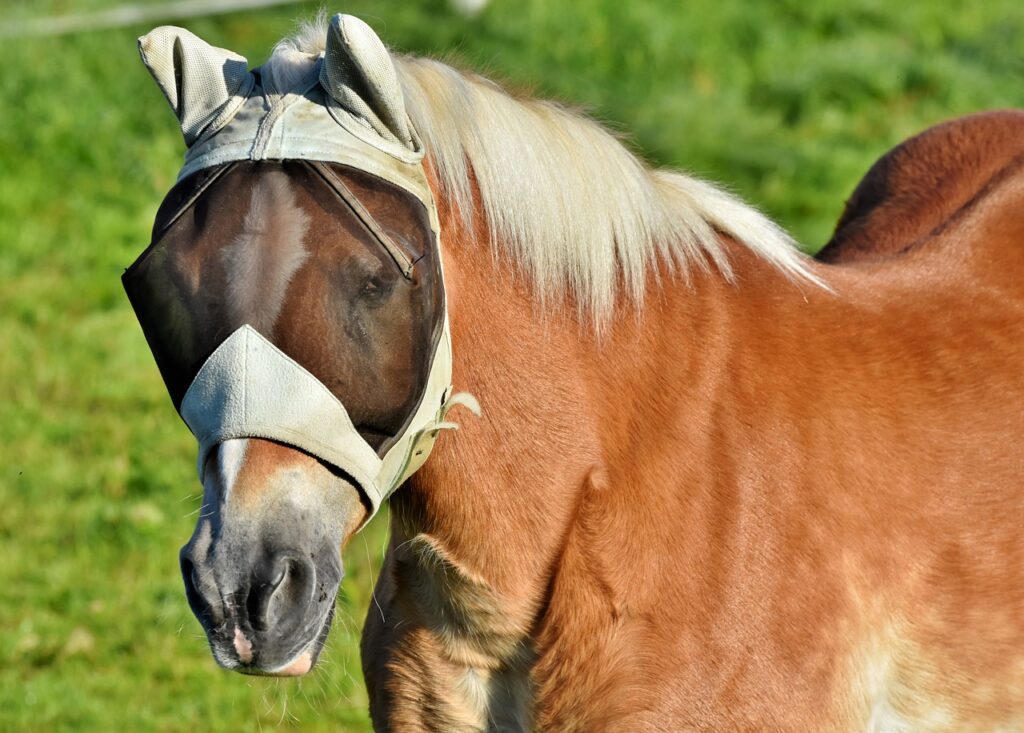
Natural Remedies to Deter Insects
If you prefer natural methods of insect control, there are several options to consider. Utilizing essential oils, planting insect-repelling plants, and constructing insect traps can help deter insects from infesting your fence.
Utilizing Essential Oils
Certain essential oils, such as citronella, lavender, or peppermint, can act as natural insect repellents. Dilute these oils with water and spray them onto your fence to deter insects. Alternatively, you can soak cotton balls in the oil mixture and place them strategically near your fence to create an insect-repellent barrier.
Planting Insect-Repelling Plants
Another natural remedy is to plant insect-repelling plants around your fence. Some plants, like marigolds, lavender, or rosemary, naturally repel insects. By strategically placing these plants along your fence line, you can create a natural barrier against pests.
Constructing Insect Traps
Insect traps can also be effective in reducing the population of insects near your fence. You can construct simple traps using household items, such as empty containers with a sweet or sugary bait inside. Place these traps near your fence to lure insects away from it.
Chemical Solutions for Insect Control
In some cases, chemical solutions may be necessary to control insect infestations on your fence. Choosing effective insecticides, applying them properly, and considering professional pest control services are important factors to consider.
Choosing Effective Insecticides
When it comes to choosing insecticides, it’s essential to select products that are specifically formulated to target the insects infesting your fence. Look for insecticides that are effective against termites, ants, or mosquitoes, depending on the specific pest problem you are facing. Read and follow the instructions carefully to ensure safe and effective use.
Applying Insecticides on Your Fence
Applying insecticides correctly is crucial for optimal effectiveness. Follow the manufacturer’s instructions on how to properly apply the product to your fence. It’s important to wear protective gear, such as gloves and goggles, during the application process and to keep children and pets away from the treated area until it is dry.
Hiring Professional Pest Control Services
If you’re dealing with a severe or persistent insect infestation on your fence, it may be necessary to seek help from professional pest control services. Pest control specialists have the expertise and specialized tools to effectively eliminate pests and prevent future infestations. Consult with reputable pest control companies to get an assessment of your situation and determine the most appropriate course of action.

Insect-Resistant Fence Designs
Choosing the right fence design can also contribute to deterring insects. Exploring different fence designs to discourage insects, creating physical barriers with tightly-spaced slats, and utilizing solid panel fencing are practices to consider.
Exploring Different Fence Designs to Discourage Insects
Certain fence designs are more effective at discouraging insects than others. For example, fences with minimal gaps or openings make it harder for insects to enter and infest. Explore different design options, such as board-on-board or stockade fences, that offer better protection against pests.
Creating Physical Barriers with Tightly-Spaced Slats
One effective way to create a physical barrier against insects is by using fences with tightly-spaced slats. Tightly-spaced slats make it more difficult for insects to enter and infest the fence. Additionally, this design can enhance privacy and security.
Utilizing Solid Panel Fencing
Solid panel fencing is another option to consider for insect resistance. These fences have no gaps or openings, making it exceptionally difficult for insects to penetrate. Solid panel fencing can be an effective deterrent against insect infestations while providing a clean and uniform look to your property.
Dealing with Specific Insect Infestations
Certain insects require specific preventive measures. Preventing termite infestations, managing ant invasions, and repelling mosquitoes from your fence are important considerations.
Preventing Termite Infestations
Termite infestations can be very damaging to wooden fences. To prevent termite infestations, ensure that your fence is made of termite-resistant materials, such as pressure-treated wood or other insect-resistant materials. Regularly inspect your fence for signs of termites and address any issues promptly.
Managing Ant Invasions
To manage ant invasions, it’s important to eliminate potential food sources near your fence. Keep your outdoor area clean and free of crumbs or food debris that may attract ants. Additionally, consider using ant baits or non-toxic ant repellents around your fence to deter ant activity.
Repelling Mosquitoes from Your Fence
Mosquitoes can be a nuisance near your fence, especially during warmer months. To repel mosquitoes, remove any standing water sources near your fence, as they provide breeding grounds for mosquitoes. Consider using natural mosquito repellents, such as citronella candles or mosquito-repellent plants, around your fence to deter these pesky insects.
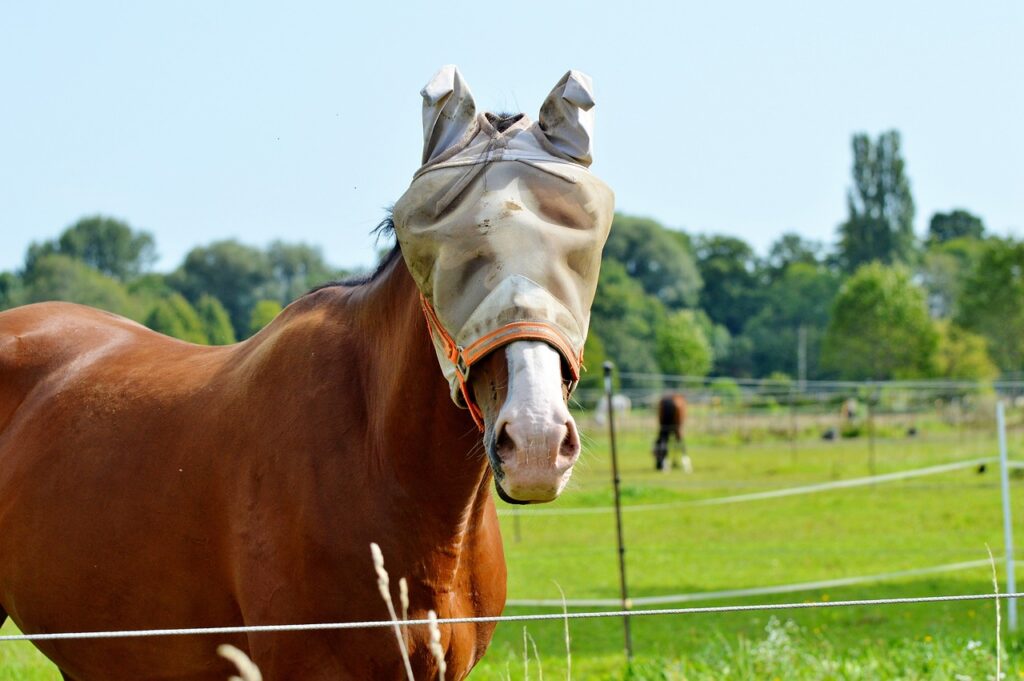
Cleaning and Sanitizing Your Fence
Regular cleaning and sanitizing of your fence are essential to prevent insect infestations. Removing attractive food sources for insects, using a vinegar and water solution for cleaning, and applying a bleach solution for sanitization are effective practices.
Removing Attractive Food Sources for Insects
Insects are attracted to food sources, such as mold or dirt buildup, that can accumulate on your fence. Regularly clean your fence to remove any organic matter or debris that may serve as a food source for insects. This simple practice can go a long way in preventing infestations.
Using Vinegar and Water Solution for Cleaning
Vinegar is a natural and effective cleaner for fences. Mix equal parts vinegar and water in a spray bottle and use it to clean your fence. The acidity of vinegar helps remove dirt, grime, and insect attractants. Spray the solution onto your fence and scrub gently with a brush, then rinse with water.
Applying Bleach Solution for Sanitization
If your fence requires sanitization, bleach can be used as an effective solution. Dilute bleach with water following the manufacturer’s instructions and apply it to your fence using a sprayer. This not only helps sanitize your fence but can also deter insects.
Proper Landscaping Around the Fence
The landscaping around your fence plays a role in preventing insect infestations. Creating a clear zone around the fence, maintaining vegetation away from the fence, and raising the soil level near the fence all contribute to reducing the risk of infestations.
Creating a Clear Zone Around the Fence
Creating a clear zone around the fence can help minimize the chances of insect infestation. Keep any clutter or debris away from the fence, as they can serve as hiding spots and breeding grounds for insects. By maintaining a clear zone, you eliminate hiding places for pests.
Maintaining Vegetation Away from the Fence
Vegetation, such as trees or shrubs, can attract insects and provide a bridge for them to reach your fence. Trim any overgrown branches or plants that come into contact with your fence. This not only reduces the risk of insect infestation but also prevents potential damage caused by overgrown vegetation.
Raising the Soil Level Near the Fence
Insects can enter your fence from the soil. Raising the soil level near the fence creates a physical barrier, making it more difficult for insects to burrow through. Additionally, consider using a layer of gravel or landscaping fabric under the soil near the fence as an additional protective measure.
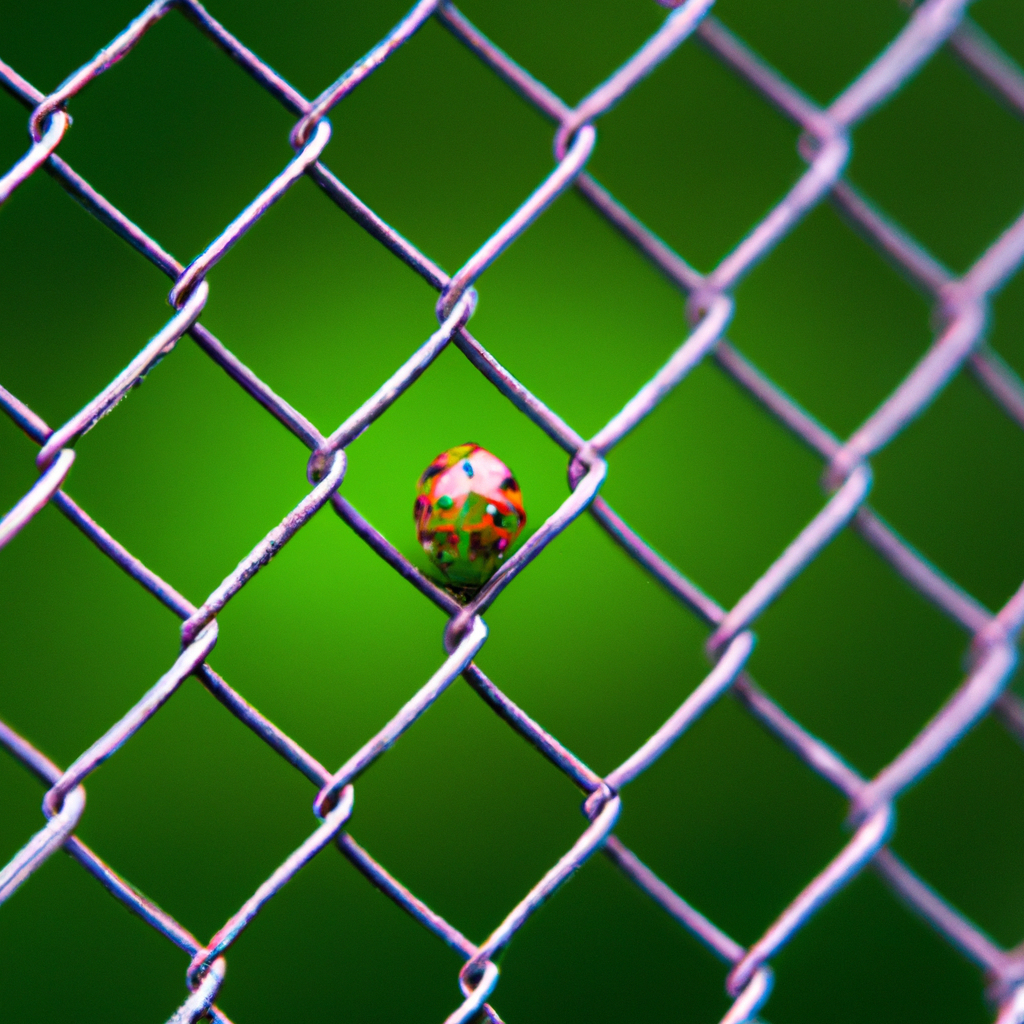
Identifying Signs of Insect Infestation
Being able to identify signs of insect infestation is crucial in addressing the issue promptly. Look for visible damage on the fence, notice insect presence or activity, and recognize the effects of insect infestation on plants.
Looking for Visible Damage on the Fence
Visible damage on the fence is one of the most apparent signs of insect infestation. Keep an eye out for holes, tunnels, or chew marks on your fence. Additionally, look for any signs of wood decay or weakening, as this could indicate a termite infestation.
Noticing Insect Presence or Activity
Being able to notice insect presence or activity near your fence is another sign of infestation. Look for swarms of termites, ant trails, or mosquitoes congregating near your fence. If you see a significant number of insects consistently near your fence, it’s important to take action to prevent infestation.
Recognizing the Effects of Insect Infestation on Plants
Insect infestations on fences can also have an impact on nearby plants. Keep an eye on any plants that are located adjacent to or in close proximity to your fence. Notice any signs of plant damage, wilting leaves, or stunted growth. These can be indicators of an insect infestation spreading from the fence to the plants.
Educating Your Family and Neighbors
Educating your family and neighbors about the risks and preventive measures of insect infestations is essential for collective prevention. Spreading awareness about insect infestations, sharing preventive measures, and collaborating with neighbors can help create a more insect-resistant community.
Spreading Awareness About Insect Infestations and Their Risks
Many people may not be aware of the risks associated with insect infestations on fences. By spreading awareness about the potential damages caused by insects and the importance of prevention, you can help educate your community and encourage proactive measures.
Sharing Preventive Measures with Your Family
Start within your own household by sharing preventive measures with your family. Teach them about the signs of infestation to watch out for and the actions to take to prevent insect damage on the fence. By involving your family, you create a stronger line of defense against infestations.
Collaborating with Neighbors for Collective Prevention
Collaborating with neighbors can make a significant impact in preventing insect infestations. Organize community meetings or create online groups where neighbors can share their experiences, concerns, and preventive methods. By working together, you can create a more insect-resistant neighborhood.
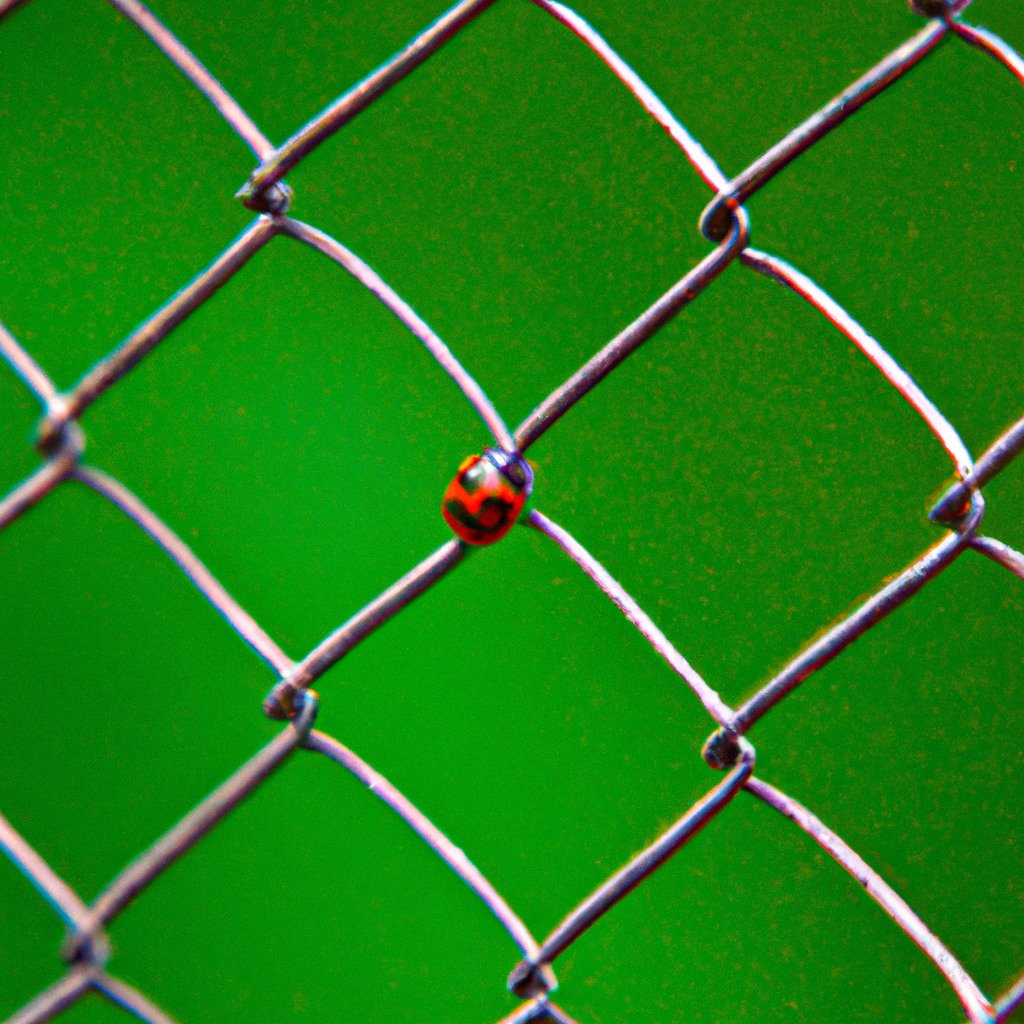
Consulting with Professionals
If you encounter persistent or severe insect infestations on your fence, it may be necessary to seek professional advice. Seeking advice from fence experts, engaging pest control specialists, and contacting entomologists for insect identification can provide valuable insights and guidance.
Seeking Advice from Fence Experts
Fence experts have a deep understanding of different fence materials and designs. They can provide advice on choosing insect-resistant fence materials and the best preventive practices. Consult with fence experts to ensure you make the right decisions for your specific needs.
Engaging Pest Control Specialists
Pest control specialists are experienced in dealing with various insect infestations. If your fence infestation persists or becomes severe, it’s advisable to engage the services of professional pest control. They can assess the situation, identify the pests, and develop effective treatment plans to eliminate the infestation.
Contacting Entomologists for Insect Identification
If you’re unsure about the type of insects infesting your fence, consider contacting entomologists. These experts specialize in the study of insects and can identify the specific species infesting your fence. This knowledge can be beneficial in selecting the most appropriate treatment methods.
10 Frequently Asked Questions:
- Can insects cause significant damage to fences?
- How can I identify signs of termite infestation on my fence?
- Are there any natural remedies to deter insects from infesting my fence?
- Which fence materials are most resistant to insect infestations?
- Can I prevent ant invasions on my fence without using chemical solutions?
- How often should I inspect my fence for signs of insect infestation?
- Are there any specific fence designs that deter insects?
- What are the signs of mosquito infestations on fences?
- How can I clean and sanitize my fence to prevent insect infestations?
- What should I do if I have a severe insect infestation on my fence?
